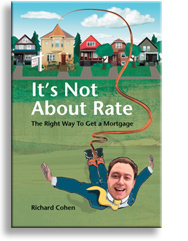Larry Cragun of Real Estate Undressed reviews posts (99 for the month of April) and recognizes the one’s he feels are most useful for consumers. I honestly don’t know how he can manage to keep up with this month after month…but I’m glad he does! He manages to select very interesting articles to read.
This month, I am honored to be amongst the Magnificent 7…please check out these other great post and Larry Craguns site where he undresses real estate and mortgage issues and what ever else may be "bugging" him!
Mortgage Rates and Why I Don’t Post Them. by Nigel Swaby: SLC Real Estate Blog
Preparing to Sell Part 1: by Merv Forney – Northern Virginia Real Estate Guide
Protecting Your Credit And Your Privacy: Blown Mortgage
Putting The Cart Before The Horse: Making A Contingent Offer; by Sparky
Should I Tell My Loan Officer About The Loan Thats Not On MY Credit Report: by Buckwheat
Two Refi Offers In One Day…Just How Lucky Can A Gal Be?: by Rhonda Porter for Rain City Guide
Top 10 Things To Know About Reverse Mortgages: by Mortgage Loan Place Lending Guide.

















Recent Comments